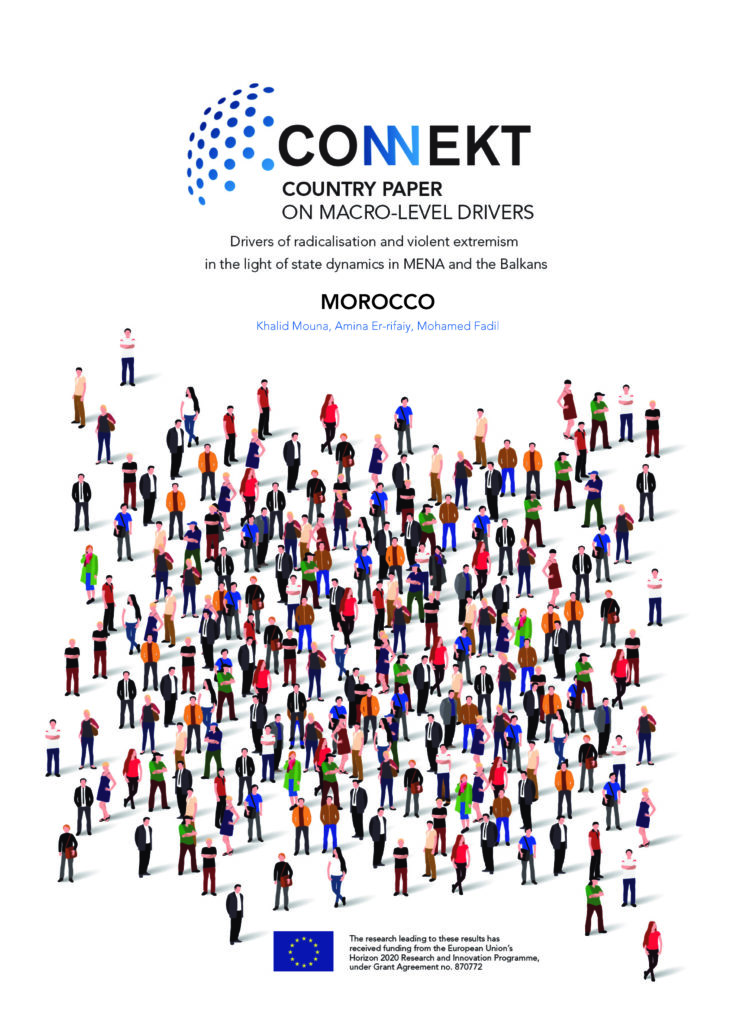Extremism has become an issue for modern states, and Morocco is no exception. There are social boundaries and barriers between a way of thinking and acting, which refers to violent extremist groups that adopt a different doctrine, and ideas perceived as threatening to social cohesion but especially to political stability. Certainly, radicalisation, especially the kind expressed through violence, seems to find a common definition in the academic field, a definition that emphasises above all the attitude of rupture of groups and individuals from society, the political regime and the religious framework. But this rupture is not perceived in the same way by states and institutions, even if states share the same standard of definition of violent extremism. Thus, in Morocco, a country where Islam is both the reference of the state as the religion of the king’s subjects but also a political framework through which the Commander of the Faithful exercises his monarchical power, violent extremism even attacks the legitimacy of this royal institution.
The CONNEKT research team based in Morocco conducted interviews with different institutions active at the national level that address the issue of violent extremism either as a field of speciality and expertise or as one of the aspects of intervention. This report gathers the results of this five-month investigation.
This project has received funding from the European
Union’s Horizon 2020 research and innovation programme
under grant agreement 870772. The contents of this website are the sole responsibility of the authors and do not necessarily reflect the views of the EU or the IEMed.
Contact Us
connekt@iemed.org
For media inquiries: jbertran@iemed.org


